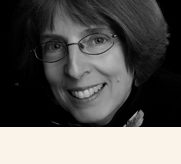My essay “So Many Names” is out this week in an anthology from Coming to the Table: Slavery’s Descendants: Shared Legacies of Race and Reconciliation, edited by Dionne Ford and Jill Strauss (Rutgers University Press).
It’s an honor to see my words among so many thoughtful pieces, but there’s no honor in being a descendant of enslavers—generations upon generations of them. Instead, there’s a lot of shame, and that’s what I reflect on in this essay.
It’s hard to write about shame. Along the way, I revised my essay repeatedly, and moreso than with fiction, the writing process felt like therapy. At times, I trembled. I cried. But I put truth into print, and that felt good. I revealed facts that I imagine some of my relatives would prefer I’d left buried. Some might say to let bygones be bygones and embrace what’s good and noble in our Southern heritage. But one of the goals at Coming to the Table is “researching, acknowledging, and sharing… [history] with openness and honesty,” and with that, I’m all in.
I yearn for America to evolve from the hypocrisy of our founding fathers into our stated ideal that all are created equal. My roots are Southern, but I grew up in the North and have heard Northerners deflect criticism, essentially ducking their complicity in our racist past (and present) by blaming the South. Many would have us believe that in order to heal from the wounds of slavery, we must continue to shame Southerners and those who live in small towns in the midwest, like Ferguson, MO. But that sort of spin lets off the hook everyone in every city with a low-income housing project and every suburb where African Americans have at one time been red-lined out. It’s a denial of the systemic nature of the problem of racism in America.
In this anthology, while many essays have a Southern flair, others reflect on slavery’s reach from New England to Oregon. This is an important book, and I hope it will inspire more folks to work toward racial reconciliation and the transformation of our society.

If you’ll be in central Virginia this coming weekend, please join me, Bill Sizemore and Karen Stewart-Ross for a conversation about Slavery’s Descendants:
Saturday, May 18, 2019
6:30 – 7:45 PM
Chop Suey Books
2913 West Cary Street
Richmond, VA 23221
Funding for the production of Slavery’s Descendants was provided by Furthermore, a program of the J. M. Kaplan Fund.
And P.S.—The New York Times featured Chop Suey Books a few weeks ago. All of us in Richmond are pretty proud of that, but then, we’ve known for years what a great place Chop Suey is.


Congratulations on your essay and thank you for your honest exploration of your family’s history. I look forward to reading your story
Thanks, Lyn. It was hard to write. But good to write, too.
It’s on my calendar.
Excellent! I look forward to seeing you Saturday.
Sounds very powerful! Yes, congratulations on this essay! I admire the fact that you took that on.
Thanks. Yes, powerful is a good word for this book. And the editors were great to work with. In an email to all of the contributors, Bill Sizemore commented that the editors “distilled our disparate voices and cobbled them into a seamless, coherent whole.” He was so right. Parts of the anthology are hard to read, but the overall message is one of hope and healing.
At last! Cancelling out-of-town visit to be with you all, to listen, and learn, and agonize and … hope. May this be another positive, truth-bound step in our long and arduous journey to reconciliation with ourselves, with the constraints of language and with one another.
I’m glad you can make it, Lindsey. Yes, it’s been a long and arduous journey toward reconciliation, but I sense that in America, we might finally be picking up the pace.
Anne, you are my role model! Thank you for taking the deep dive into the social justice pool! I will definitely see you on Saturday. I need to get this book!
It certainly has been a deep dive, hasn’t it?! Although you and I met at Martha’s, the day we really connected was when CTTT’s 2015 national conference ended and we drove back to RVA together. I can’t thank you enough for your insights and understanding of the many ways slavery has scarred European Americans — not at all in the same ways that African Americans have been harmed — but nonetheless, there are scars. All of us need to heal… and come together in the process.